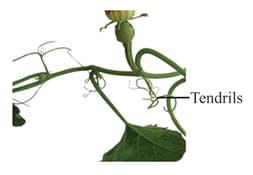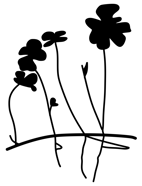Leaves are modified into spines and stems become fleshy and flattened to carry out photosynthesis. Such modified stem is present in:

Important Questions on Morphology of Flowering Plants
Identify the modified structure in the given figure.

Read the following statements and choose the correct option.
Statement A: Underground stems of potato, ginger, turmeric, zaminkand, and Colocasia are modified to store food in them.
Statement B: They also act as organs of perennation to tide over conditions unfavourable for growth.
The underground stem of some plants such as grasses, strawberry is concerned with
(a) Perennation.
(b) Vegetative propagation.
(c) Moisture absorption.
(d) Food assimilation.
(e) Spread to new niches.
Select the option that is correct for the description of subaerial modification.
(a) A slender lateral branch arises from the base of the main axis and, after growing aerially for some time, arches downwards to touch the ground.
(b) A lateral branch originates from the basal and underground portion of the main stem, grows horizontally beneath the soil, and comes out obliquely upwards, giving rise to a leafy shoot.
The type of sub-aerial stem modification depicted in the following diagram is present in

Identify the statements as true (T) or false (F).
(a) Stem tendrils develop from axillary buds in gourds and grapevines.
(b) In Opuntia, the stem becomes flattened and fleshy. It contains chlorophyll and carries out photosynthesis.
(c) In Chrysanthemum, the lateral branches arise from the apex of the plant.
(d) Underground stems of grass and strawberry spread to new niches.
